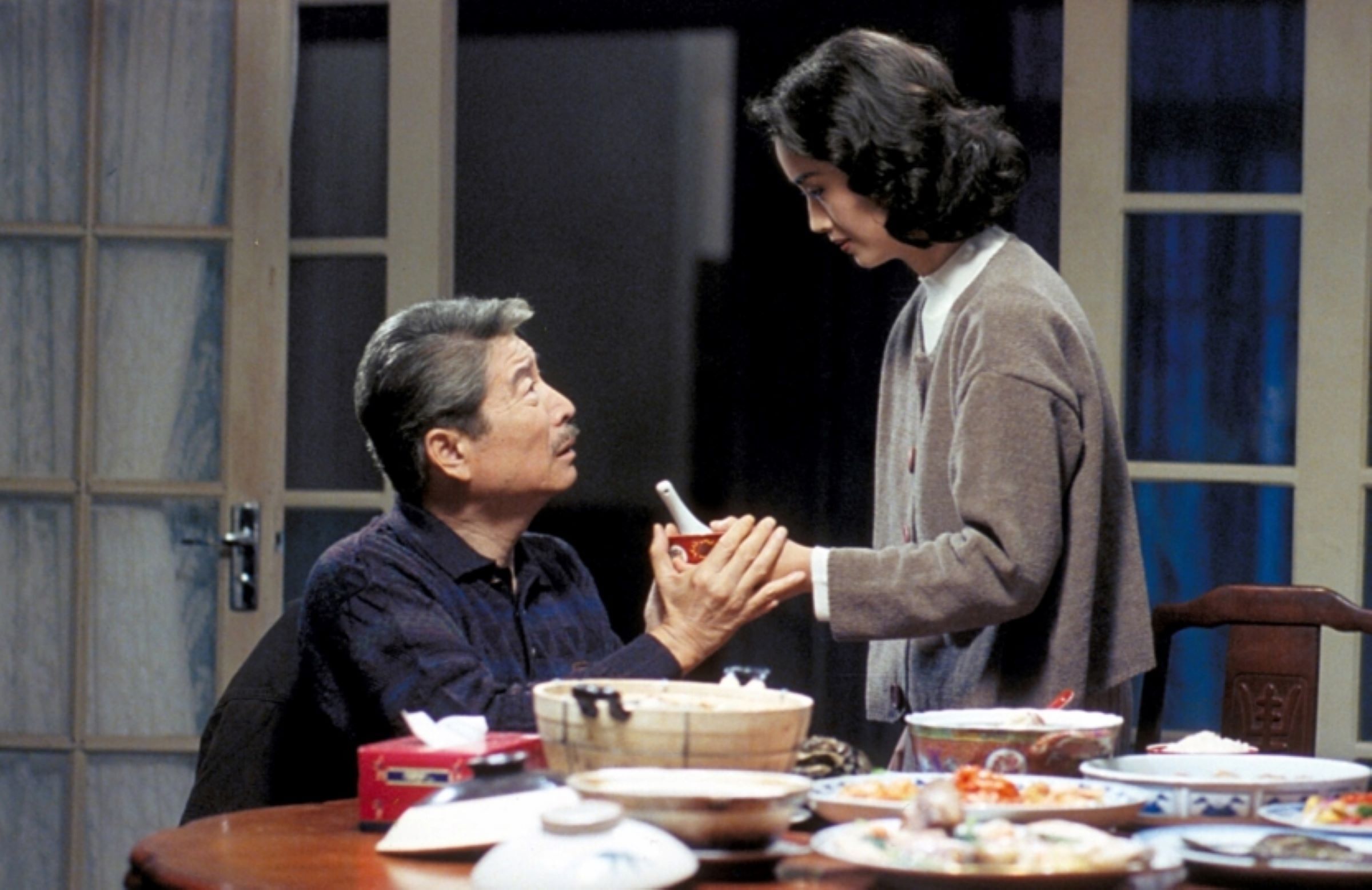
A still from Eat Drink Man Woman.
The taste of an autumn chill in the air and the sight of students scattered along the sidewalks means one thing is for certain: Yale’s fall semester has begun. It also means Yale Film Archive’s fall series has begun. On Thursday night a capacity crowd devoured the first film of that series, the 1994 Ang Lee-directed Eat Drink Man Woman, which follows a family through their lives that culminate each week in a Sunday dinner where secrets are revealed and chaos often ensues, but love conquers all.
Lee’s film, shown in 35 mm, was also the first in the Treasures from the Yale Film Archive portion of the series which consists of “classic and contemporary films from their collection.” And what a treasure it was, though one of the other joys of attending the first film of the semester is finding out what else lies ahead. Calendars listing all of the other films were available for attendees to take and peruse, and they were also encouraged to sign up for the mailing list, which enables one to receive email reminders (readers here can do that online at the YFA website). Beside the Treasures films, this semester will include films under the following categories: O Canada, a selection of features and shorts from out norther neighbors; Five for Fonda, a selection of films featuring Henry Fonda, Wisemania, a selection of documentary filmmaker Frederick Wiseman’s work; and Cinemix, which are stand-alone screenings of a multitude of different films, some with live guests and presenters.
The capacity crowd was palpably excited to be there, many sharing their calendars with each other and discussing what was to come prior to this film beginning, but the focus was definitively on Lee’s celebration of family and food once the lights dimmed. The opening scene, set in Master Chef Chu’s home kitchen, follows him through his preparation of Sunday dinner for his three daughters: Jia-Jen, the teacher with a broken heart who has given her life over to God; Jia-Chien, who has given her life over to her high paced job; and Jia-Ning, a student who longs to give her own heart to her friend’s boyfriend.
Lee lingers over the painstaking details of Chu’s dinner preparation, and throughout the film the love and care that goes into food preparation is revisited often. The washing, slicing, dicing, and frying all become part of a ritualistic dance that results in culinary masterpieces, though Jia-Chien calls the get togethers the “Sunday dinner torture ritual.” What the viewer comes to see and feel is the stress between the family members, each with their own secret that they long to share, each with their own dreams they wish to fulfill, but all of them stuck in the ritual of being who they always were.
Lee has a vast filmography made up of quite a few different genres — everything from sweeping epics like Crouching Tiger, Hidden Dragon to smaller, more intimate films like The Ice Storm — but whatever film he makes he tends to do so primarily with an interest in relationships and what makes people tick. You don’t come away from one of his films not caring about the people in it. This family as well as their friends and love interests all become people you are interested in immediately, their little idiosyncrasies becoming the source of big feelings, and equal amounts of pathos and humor prevail. Chu might be the best chef in all of Taipai, but he still takes the time to make elaborate school lunches for Shan-Shan, the young daughter of his daughter’s childhood friend who is dealing with her own messy divorce and overbearing mother. The delight with which these lunches are made, delivered, and received shows the kindness he still has within him even as his taste buds fail and his daughters frustrate him.
Eat Drink Man Woman also excels at shining a light on the struggle between tradition and change, familial expectations and the quest for something new, and the breaking down of stereotypical roles. The actors playing the main characters make you feel like you know them by the end of the film. You find yourself rooting for each one of them to find exactly what they are looking for.
And, I can’t imagine anyone watching this film not feeling hungry afterwards. It took everything in me to not hunt down some dumplings after I left the Humanities Quadrangle.
The film made me miss my own father, who did not cook but loved to eat and also loved to sit around a dinner table with his family. Some of the best films made are a touchstone to our own lives. Not unlike Lee’s film Brokeback Mountain (which I wrote about here last week), this one turned the viewer’s vision inward, reminding them that we are all very different but still may want the same thing: to be exactly who we are and to be loved for it.
As I left the theater a woman turned to me and said, “All that cooking was so complicated.” I agreed, but it was also beautiful, just like family and life itself.
Yale Film Archive’s film series are free and open to the public. You can view the fall semester schedule at their website, and you can sign up for their mailing list there as well.